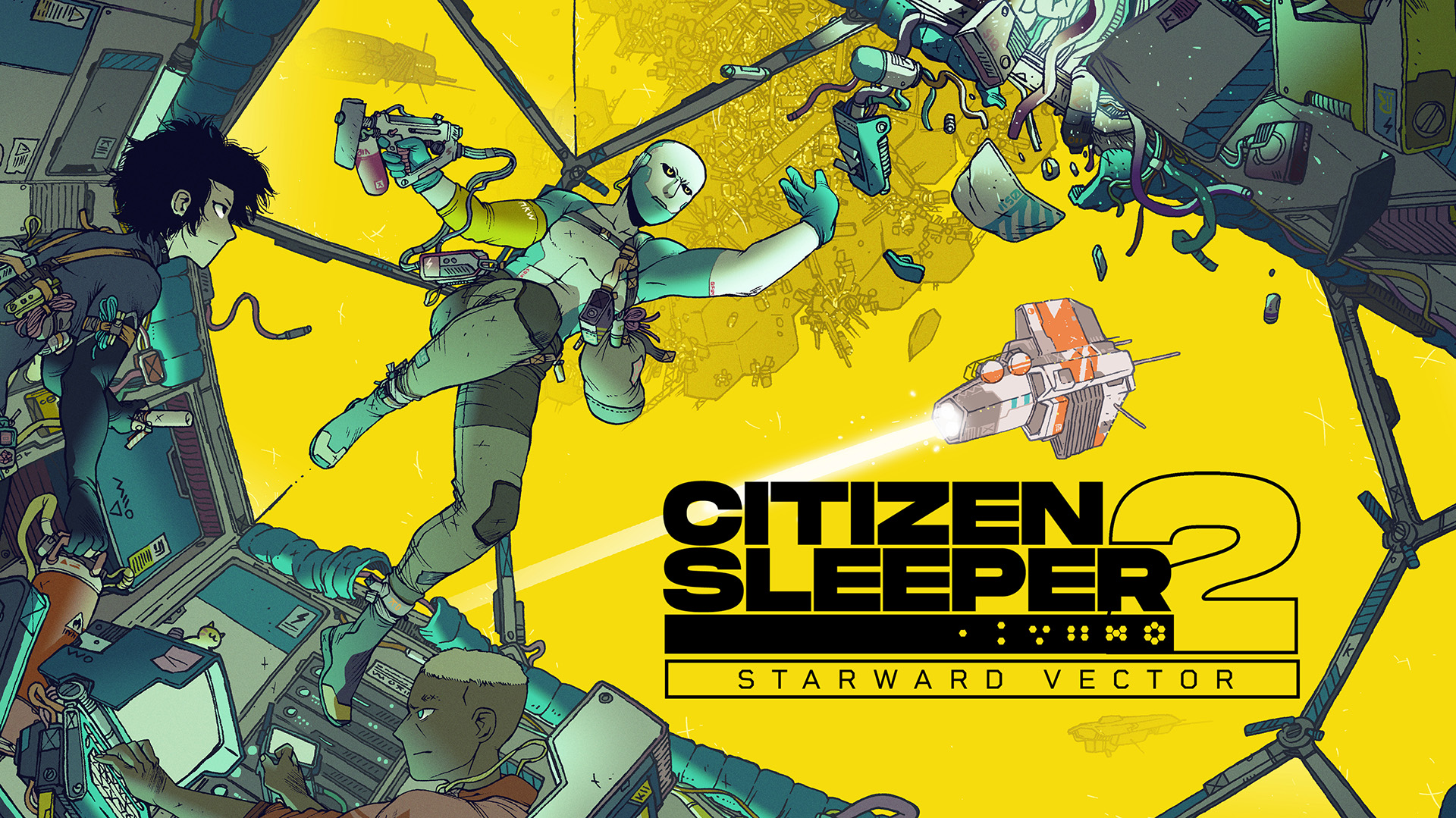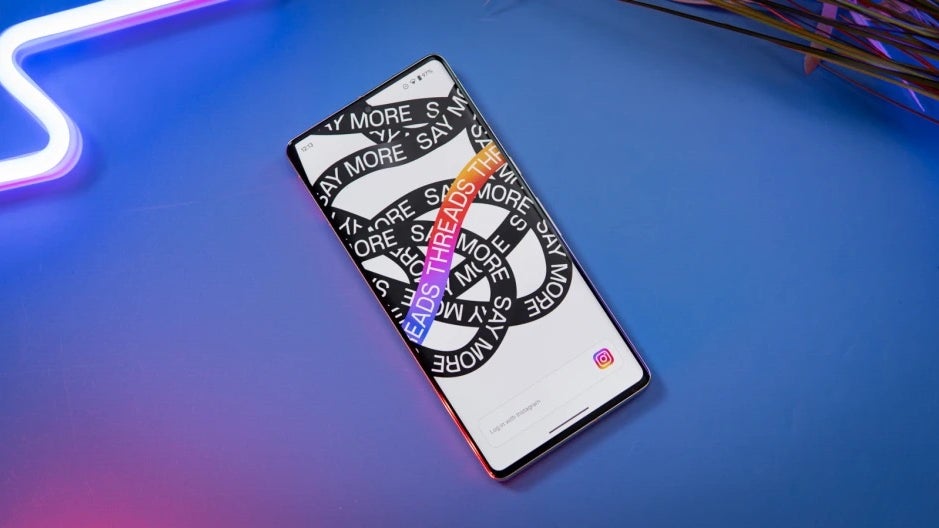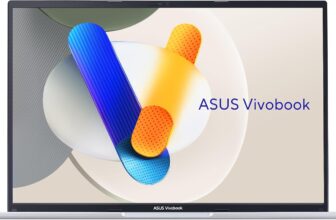

Bomb Rush Cyberfunk is an immensely conflicting outing that capitalizes on nostalgia by drawing water from the same punk-as-hell city tap as Jet Set Radio. Sometimes the cup runs over. Others, rusted pipes bleed into the water, poisoning the experience.
Jet Set Radio casts a low-poly shadow over any game about street culture or graffiti—cel-shaded or not—and Bomb Rush Cyberfunk deserves better than getting labeled as an imitator and getting hocked in some back alley tourist trap with knockoff Gucci bags and Rolex watches. But despite its effort to tag its own turf, Bomb Rush ends up retreading old ground and painting over tags left by the Dreamcast classic and reigning king of the microgenre.
For those unaware, Jet Set Radio is a cult classic from Sega’s ill-fated but fondly-remembered Dreamcast console, which launched in 1999. US-based readers may know it as Jet Grind Radio, though later versions (like the one found on Steam today) go by its original Japanese title. The cult classic has gone on to influence counterculture and gaming alike thanks to its distinct sense of style and singular understanding of Japanese street culture in the late ’90s and early 2000s.

Its influence is so pervasive that even Nintendo took a few cues from its immutable style in creating Splatoon. Aside from PC, it’s available to play on modern platforms only via the soon-to-close Xbox 360 marketplace, and it’s never graced a Nintendo platform before (minus the GBA de-make), so the mere existence of a game like Bomb Rush on Switch is really exciting because, aside from a few minor differences, Jet Set Radio and Bomb Rush Cyberfunk share near-identical gameplay loops.
You’re part of a crew of graffiti artists (or writers) whose goal is to tag the city’s various boroughs with your crew’s graffiti and in doing so, become the ruler of the streets. Spraying your tag involves a series of directional prompts and successfully tagging something might alert the police to your presence. Dealing with the cops is tricky; they’re corrupt and trigger-happy. Eager to take down you and your crew of vandals, they will use lethal force, so you’ll need to outrun them.
Bomb Rush introduces a few innovations to the formula, though nothing that re-invents the urethane wheel. You’re no longer locked to skates; instead you’re given the choice between BMX bikes, skateboards, and classic skates. And, aside from a few story moments, you can play as any of the characters in the Bomb Rush Crew.

The other major innovation here is tagging; instead of following the game’s directional prompts, you’re able to decide from a few directions to press that will result in different images to throw up on the walls of New Amsterdam. Different combinations will result in different paintings, though instead of discovering them on your own, you’ll be tasked with unlocking them after defeating rival crew members in various types of competitions designed to show off your skills, street smarts, and speed.
In between tagging walls, you’ll encounter a number of diversions throughout the game’s five sprawling levels. Mini-challenges that encourage you to high-five a set number of little statues around each level scatter New Amsterdam and provide you with opportunities to unlock secret songs and new outfits for the playable characters. That’s where another innovation comes in: when the cops get smart to your paint-spraying antics, you can head to a bathroom to change your outfit and lose the heat.
Levels are also absolutely packed with miles upon miles of rails to grind on, ensuring that even something as simple as going to the opposite side of a level to complete an objective becomes a game within itself as you get the chance to try and build up the biggest combo you possibly can by jumping from rail to rail, riding on billboards and pulling off manuals to extend your string of fancy moves. Pulling off a sick combo taps into an unbeatable sense of momentum that deserves praise, but combos rarely feel conclusive or meaningful unless you’re in the midst of competing against a CPU to get the most points. It’s absolutely baffling that the scoring system doesn’t track your points in individual sorties into Bomb Rush’s bustling boroughs. Even a rating after completing a level or chapter would be nice, but players are awarded no such thing on completing a level.
Just as difficult as it is to discuss Bomb Rush Cyberfunk without also mentioning Jet Set Radio, it’s impossible to bring up Bomb Rush without also paying respect to its absolutely stellar soundtrack. Hideki Naganuma, the notoriously Family Guy-obsessed composer whose work on Jet Set Radio played a major part in cementing its cult status makes his triumphant return to making lo-fi beats to skate to alongside a cypher of other newcomers, including 2 Mello and GRRL. It’s hard to communicate just how spectacular this soundtrack is, but suffice it to say, it’s easily one of the best of the year and a worthy contender for one of the best soundtracks of the Switch era. We’re sure to be listening to it for a while to come.
Part-in-parcel with its audio design, Bomb Rush Cyberfunk is an absolute treat to look at. Even on a day one, launch-edition Switch that’s seen scratches, falls, and dozens of moves, Bomb Rush’s environments and colors pop off the screen in handheld mode. From the red light district in Mataan to the bright yellow power plant, each environment boasts its own distinct style and vibe and set of environmental challenges. We spent hours in each level just trying to explore every nook and cranny in the game’s sprawling levels. It’s a shame it’s so hard to take screenshots while racking up a 90-trick combo. One standout aspect beyond the immaculate vibes seen in BRC’s environments is its graffiti. Each individual piece oozes character with plenty of different styles on display. Artists are even credited individually for their work within the game, which is a rare, refreshing touch.

Of course, with such high biog, busy environments, and the ability to fly through the game’s levels comes a few drawbacks and performance issues. For the most part, the game just drops a frame or two, but going from area to area prompts painfully long loading screens, even compared to the long load screens you might find in Tears of the Kingdom. Long load times are far from Bomb Rush’s greatest tech issue, though. We encountered multiple full-on crashes that lost some progress and required us to re-open the game, which exacerbated the long load times.
Conclusion
No matter how excellent its soundtrack or sense of momentum may be, there’s no shaking the sense that Bomb Rush Cyberfunk is in a race against its own sense of nostalgia. The game rips, but more often than not it feels like that’s because Jet Set Radio ran before it. That’s not to say it’s bad, but part of what makes Jet Set Radio so fun and unique is its raw originality. Bomb Rush Cyberfunk feels like a sequel in everything but name—for better and for worse. For every banger in its soundtrack, there’s a moment of jank or a feeling that this game hasn’t left 2000. Again, it’s still a great time, but it’s lacking that lightning-in-a-bottle feel that JSR had. That’s totally fine, and for people who missed out on it, this will feel much fresher.

Bomb Rush Cyberfunk is an immensely conflicting outing that capitalizes on nostalgia by drawing water from the same punk-as-hell city tap as Jet Set Radio. Sometimes the cup runs over. Others, rusted pipes bleed into the water, poisoning the experience.
Jet Set Radio casts a low-poly shadow over any game about street culture or graffiti—cel-shaded or not—and Bomb Rush Cyberfunk deserves better than getting labeled as an imitator and getting hocked in some back alley tourist trap with knockoff Gucci bags and Rolex watches. But despite its effort to tag its own turf, Bomb Rush ends up retreading old ground and painting over tags left by the Dreamcast classic and reigning king of the microgenre.
For those unaware, Jet Set Radio is a cult classic from Sega’s ill-fated but fondly-remembered Dreamcast console, which launched in 1999. US-based readers may know it as Jet Grind Radio, though later versions (like the one found on Steam today) go by its original Japanese title. The cult classic has gone on to influence counterculture and gaming alike thanks to its distinct sense of style and singular understanding of Japanese street culture in the late ’90s and early 2000s.

Its influence is so pervasive that even Nintendo took a few cues from its immutable style in creating Splatoon. Aside from PC, it’s available to play on modern platforms only via the soon-to-close Xbox 360 marketplace, and it’s never graced a Nintendo platform before (minus the GBA de-make), so the mere existence of a game like Bomb Rush on Switch is really exciting because, aside from a few minor differences, Jet Set Radio and Bomb Rush Cyberfunk share near-identical gameplay loops.
You’re part of a crew of graffiti artists (or writers) whose goal is to tag the city’s various boroughs with your crew’s graffiti and in doing so, become the ruler of the streets. Spraying your tag involves a series of directional prompts and successfully tagging something might alert the police to your presence. Dealing with the cops is tricky; they’re corrupt and trigger-happy. Eager to take down you and your crew of vandals, they will use lethal force, so you’ll need to outrun them.
Bomb Rush introduces a few innovations to the formula, though nothing that re-invents the urethane wheel. You’re no longer locked to skates; instead you’re given the choice between BMX bikes, skateboards, and classic skates. And, aside from a few story moments, you can play as any of the characters in the Bomb Rush Crew.

The other major innovation here is tagging; instead of following the game’s directional prompts, you’re able to decide from a few directions to press that will result in different images to throw up on the walls of New Amsterdam. Different combinations will result in different paintings, though instead of discovering them on your own, you’ll be tasked with unlocking them after defeating rival crew members in various types of competitions designed to show off your skills, street smarts, and speed.
In between tagging walls, you’ll encounter a number of diversions throughout the game’s five sprawling levels. Mini-challenges that encourage you to high-five a set number of little statues around each level scatter New Amsterdam and provide you with opportunities to unlock secret songs and new outfits for the playable characters. That’s where another innovation comes in: when the cops get smart to your paint-spraying antics, you can head to a bathroom to change your outfit and lose the heat.
Levels are also absolutely packed with miles upon miles of rails to grind on, ensuring that even something as simple as going to the opposite side of a level to complete an objective becomes a game within itself as you get the chance to try and build up the biggest combo you possibly can by jumping from rail to rail, riding on billboards and pulling off manuals to extend your string of fancy moves. Pulling off a sick combo taps into an unbeatable sense of momentum that deserves praise, but combos rarely feel conclusive or meaningful unless you’re in the midst of competing against a CPU to get the most points. It’s absolutely baffling that the scoring system doesn’t track your points in individual sorties into Bomb Rush’s bustling boroughs. Even a rating after completing a level or chapter would be nice, but players are awarded no such thing on completing a level.
Just as difficult as it is to discuss Bomb Rush Cyberfunk without also mentioning Jet Set Radio, it’s impossible to bring up Bomb Rush without also paying respect to its absolutely stellar soundtrack. Hideki Naganuma, the notoriously Family Guy-obsessed composer whose work on Jet Set Radio played a major part in cementing its cult status makes his triumphant return to making lo-fi beats to skate to alongside a cypher of other newcomers, including 2 Mello and GRRL. It’s hard to communicate just how spectacular this soundtrack is, but suffice it to say, it’s easily one of the best of the year and a worthy contender for one of the best soundtracks of the Switch era. We’re sure to be listening to it for a while to come.
Part-in-parcel with its audio design, Bomb Rush Cyberfunk is an absolute treat to look at. Even on a day one, launch-edition Switch that’s seen scratches, falls, and dozens of moves, Bomb Rush’s environments and colors pop off the screen in handheld mode. From the red light district in Mataan to the bright yellow power plant, each environment boasts its own distinct style and vibe and set of environmental challenges. We spent hours in each level just trying to explore every nook and cranny in the game’s sprawling levels. It’s a shame it’s so hard to take screenshots while racking up a 90-trick combo. One standout aspect beyond the immaculate vibes seen in BRC’s environments is its graffiti. Each individual piece oozes character with plenty of different styles on display. Artists are even credited individually for their work within the game, which is a rare, refreshing touch.

Of course, with such high biog, busy environments, and the ability to fly through the game’s levels comes a few drawbacks and performance issues. For the most part, the game just drops a frame or two, but going from area to area prompts painfully long loading screens, even compared to the long load screens you might find in Tears of the Kingdom. Long load times are far from Bomb Rush’s greatest tech issue, though. We encountered multiple full-on crashes that lost some progress and required us to re-open the game, which exacerbated the long load times.
Conclusion
No matter how excellent its soundtrack or sense of momentum may be, there’s no shaking the sense that Bomb Rush Cyberfunk is in a race against its own sense of nostalgia. The game rips, but more often than not it feels like that’s because Jet Set Radio ran before it. That’s not to say it’s bad, but part of what makes Jet Set Radio so fun and unique is its raw originality. Bomb Rush Cyberfunk feels like a sequel in everything but name—for better and for worse. For every banger in its soundtrack, there’s a moment of jank or a feeling that this game hasn’t left 2000. Again, it’s still a great time, but it’s lacking that lightning-in-a-bottle feel that JSR had. That’s totally fine, and for people who missed out on it, this will feel much fresher.






